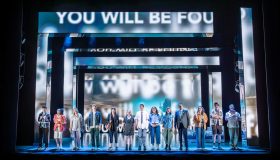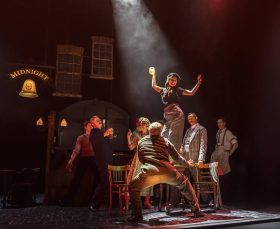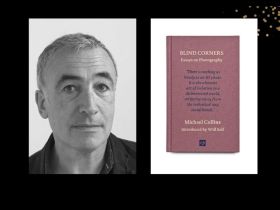It’s just over two years since the launch of the PRS Foundation, an independent charity funding new music in the UK, and the outcomes are pretty staggering. Over 700 organisations have received £2.3 million in funding for a diverse range of projects; from festivals, to cross-art form collaborations. For David Francis, Manager of the Performing Right Society Foundation, this is not just another office job. It’s more rewarding than that.
‘I enjoy seeing that our funding impacts on social regeneration, re-engagement, celebration, experimentation…it’s not just about the music,’ Francis emphasises.
‘I enjoy being at an urban gig one night and at the opera the next. I enjoy learning about all the music I don’t know about and meeting the creative communities behind the UK’s vibrant new music scene. I like the fact that we are supporting new music creators and promoters and that they respond so positively to our interest in their work.’
Launched in March 2000, PRSF is now the largest independent funder for new music of any genre in the UK.
The Foundation defines ‘New Music’ as music of any genre which is in copyright, although they seek to ‘focus support on creators of music living and working in the UK.’
Organisations can apply for awards under a number of diverse schemes. Live Connections recognises the need to support live electronic music and dance, while the Festivals scheme has awarded funding to events such as the Huddersfield Contemporary Music Festival in November.
Interesting collaborations have been encouraged through the Ensembles awards scheme, like ‘The Orchestra’, a group of young, classically trained musicians who collaborated with film-makers, artists and musicians in fields other than classical music to produce original performances.
Francis says in a landscape where classical music receives the majority of funding, PRSF has reached a niche market and attracted organisations who would not normally seek financial assistance.
‘Because of our open-door culture and flexibility we have attracted many applications from those sectors who do not normally apply for funding,’ Francis explains.
‘Over two-thirds of our funding goes to the non-classical sector which again is exemplary in the UK where the majority of public funding goes to the classical sector,’ he says.
Francis was at the forefront of establishing the Foundation, a subsidiary of The Performing Right Society, in the late 1990s.
PRS has been in existence since 1953, but Francis says, it was a largely reactive body. A Donations and Awards scheme was set up in the 1960s to deal with demand and by the 1990s was distributing about a £1/4 million per year.
But changes to the way PRS distributed funds, in terms of royalties, soon freed up money which was directed by the Board into new music and PRSF was established.
One of the Foundation’s recent success stories was their support for new British music at the Cultureshock festival in Manchester this year, the arts festival complementing the 2002 Commonwealth Games.
‘We supported the British music content which included a residency by composer/musician Nitin Sawhney,’ Francis explains.
‘The highlight of his residency was he worked with 12 young people from Manchester in a 72 hour session. Together they produced a set of original songs and performed them live at the end of the 72 hours in a professionally promoted gig as part of the festival,’ Francis says.
Debra King, Creative Producer of Cultureshock, says the input from PRSF was hands-on and innovative.
‘They’re this team of people who are incredibly helpful and supportive,’ King says.
‘They came to the events and they were interested in how they were presented. They’re really open to innovative approaches to promoting contemporary music,’ she said.
According to Francis, it’s this innovation that sets PRSF apart from other funding bodies, and something they want to retain.
‘The Foundation really must not slip into being simply another reactive ‘grey’ funding body. We want to project PRSF as interesting and vibrant and as an organisation people will come to because they are interested in new music, not simply because they are after cash!’ Francis says.
‘Many other independent foundations which support new music in the UK do really valuable work but can be a bit conservative in their outlook. PRSF is willing to stick its neck out and accepts that there is an element of risk in some of the projects we fund. I think that is why we are successful, we have filled a niche in the UK.’
It’s clear from Francis’ enthusiasm for the eclectic projects PRSF assist, that here is someone who is not only down to earth, but as passionate as the artists when it comes to the works he commissions.
‘I’ve just commissioned six electronic sounds installations for the elevators in a London Conference Venue, which will be installed next week during a conference hosted by PRS. I can’t wait to hear the results!’
For more information on the PRS Foundation, visit their website at www.prsf.co.uk




